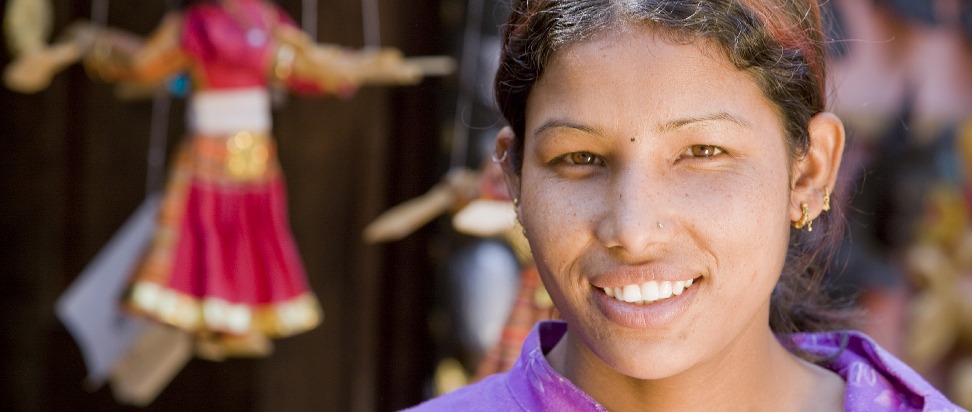By Internet Society CEO Kathy Brown, with contributions from Internet Society Trustees Desiree Miloshevic, Theresa Swinehart and Narelle Clark
International Women’s Day is March 8, and this year’s theme is “Equality for women is progress for all.” This sentiment is especially resonant in the technology fields, where recent studies have shown that increased diversity fuels greater innovation, creativity and competitiveness. Even so, numbers of women in STEM (science, technology, engineering and mathematics) remain alarmingly low in some of the world’s leading economies.
Because of the global nature of its membership, the Internet Society has an extremely unique perspective of Information and Communications Technology (ICT) initiatives being undertaken to bring Internet access and training to more women around the world, and to support those interested in pursuing technology careers. It’s humbling and inspiring to see the dedication of people undertaking such a critical mission, and to hear the impact on the girls and women they are reaching.
Connecting Women of the World
Bringing ICT Training to Girls in Rural Pakistan
The Pakistan Social Association (PSA) has given hundreds of young girls from rural Pakistan basic training in computer and Internet use with the goal of investing in their long-term education and helping them potentially develop a career in ICT. Getting rural students, especially the girls, involved and comfortable with computers and the Internet early is crucial for increasing diversity in the ICT industry, as well as the greater online community. Even more important, the initiative addresses gender inequality, one of the country’s most pressing social issues. The multi-year project, supported by the local Internet Society Chapter, culminated in April when 300 girls received their training certification after 15 community leaders in villages around Islamabad were trained to educate 20 girls each. This ‘multiplier’ strategy was so effective that there are plans to implement it again with a new goal: they want to reach 20,000 girls.
Building Computer Labs in Remote Pacific Islands
In the Federated States of Micronesia, there is little affordable Internet access, and computers are scarce. The Chuuk Women’s Council, in Chuuk State, which is part of these remote islands in the Pacific, wanted to change that for hundreds of girls and women it already serves. The organization, which promotes women’s leadership, education opportunities and cultural preservation, sought funding for a computer lab from the Internet Society’s Community Grants Programme and the Information Society Innovation Fund to improve employment and communications opportunities for the women of Chuuk. The result: a suite of laptop computers that has significantly enhanced quality of life and introduced many girls to the powers of ICT. The council hopes to partner soon with a local college for advanced computer and Internet training.
From Zimbabwe to the IETF and Beyond
As a network engineer at one of Zimbabwe’s leading Internet Service Provider’s (ISP), Nomsa Muswai wanted to broaden her knowledge of, and participation in, the broader Internet technical community. She applied for, and received, an Internet Society Fellowship to attend a meeting of the Internet Engineering Task Force (IETF), the premier Internet standards organization. The Fellowship, which enables technologists from developing countries to participate in the IETF meetings, also paired Nomsa with an experienced mentor, and gave her the opportunity to contribute to IETF work. “Participating in the IETF helped me appreciate the value of creativity and the strategic advantage of using it to improve socio-economic activities throughout the world using the Internet,” she notes. “Working groups are flexible enough to accommodate people from around the world with different skills, skill-levels, and interests, and the sheer cooperation and collaboration to achieve common goals irrespective of background was humbling and uplifting.”
The Impact of Collaboration and Connections
The rewards of using the most profound technology of our time to make a global impact are innumerable. It’s crucial that we help our daughters understand the benefits and value of participating in the ICT field. I can speak from experience when I say that opportunities abound for collaboration, a deeper connection to community and a strong sense of having a very real impact on your world.
The role of women in ICT came up in a recent conversation with several women members of the Internet Society Board of Trustees. I was interested to hear what lessons they had learned and could share from their years in the industry.
Lesson 1: There’s tremendous power in establishing and building community
After Desiree Miloshevic landed a job in a networking department at an ISP in the early 1990s, she joined Boadicea, a group for women working in digital media in London. “This group, which inspired many women to launch their own Internet start-ups, demonstrated to me the power of building a support infrastructure for women,” notes Desiree. Later, as a Computer Professionals for Social Responsibility (CPSR) Board member, she helped organize ‘Women in Computing’ workshops and install wireless Internet antennas on remote islands in the Pacific. Now a Senior Public Policy and International Affairs Advisor/Europe for Afilias, Desiree continues to see the positive impact of building community, and established an open, informal space for computer programming in Belgrade where women developers teach each other, as well as men, various computing skills.
Lesson 2: ICT isn’t just for engineers
The ICT field wasn’t a foreseen career path for Theresa Swinehart, Senior Advisor to the President on Global Strategy at ICANN. She came to it with a background in international relations, human rights and law. But it’s an example of the mix of backgrounds engaged in the ICT sector, which is often perceived to be limited to those with technical experience. But in fact, this sector bridges many industries and underlies almost every social, economic and cultural facet of our lives. “There’s a misperception that an ICT career involves a technical education or background, but this isn’t the case,” adds Theresa. “Because ICT is so pervasive, all backgrounds and expertise are essential. A crucial part of the job is about working to build consensus to bridge diverse views and interests, and the increasing use of mobile is going to open the future up even more to new wonders and opportunities yet unforeseen.”
Lesson 3: ICT is actually a ‘people’ job
Narelle Clark, President of the Internet Society Australia Chapter, spent years working with Females in IT and Telecommunications, which offered mentoring programs and topics of interest to women in the ICT industry. She observes, “In many places, ICT jobs can offer more work flexibility and more money than many other jobs, so they are a great choice for women who want to have a family. Roles are really diverse too: there are many successful women in the ICT field with not only deeply technical jobs requiring analytical thought and the latest in particle physics, but many more women work directly with people—understanding their needs and creatively weaving other women into the global tapestry of modern digital life.”
Indeed, if greater diversity fuels greater innovation, we’ll all be the beneficiaries of global inclusion in the Internet.
Five Great Resources for Women in Technology
- Internet Society Community Grants Programme: Provides funding annually to projects around the world that will bring technological resources to under-served populations. Applications for 2014 will be accepted from March 3-31, and winners will be announced in June.
- The Internet Society Fellows to IETF Programme: This award enables technologists from developing countries to participate in meetings of the IETF, the premier Internet standards-making body. First-time fellows are paired with an experienced mentor and are given the opportunity to make a positive contribution to IETF work.
- ABI LeanIn Circles: The Anita Borg Institute and LeanIn.org have partnered to offer support for women pursuing or considering careers as technologists. Circles meet regularly to learn and share together.
- Systers-IETF: A list for Systers involved in IETF topics — both technical and specific to women. Open to any woman interested in the IETF, whether she participates only by mail or also in person.
- Girls in Tech: Girls in Tech (GIT) is a global organization focused on the engagement, education and empowerment of influential women in technology.

